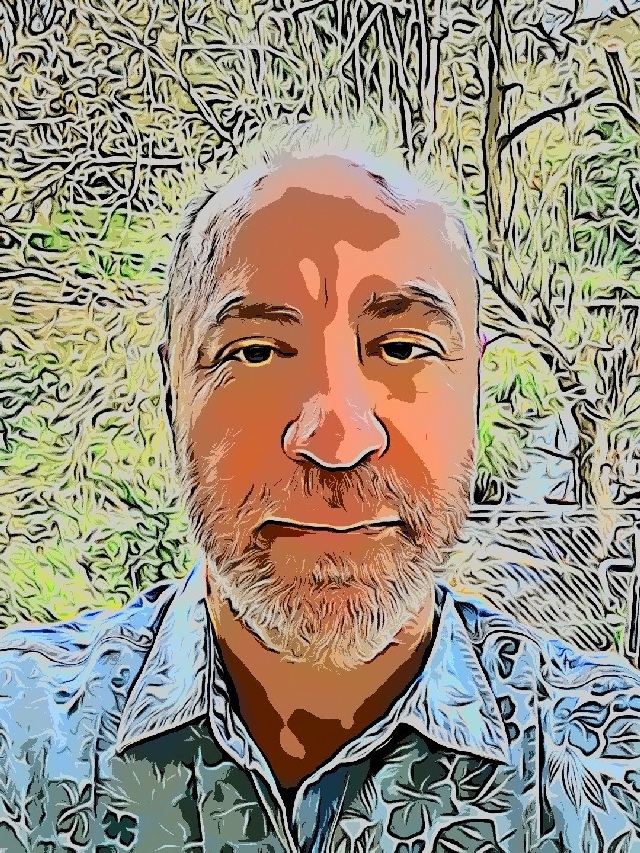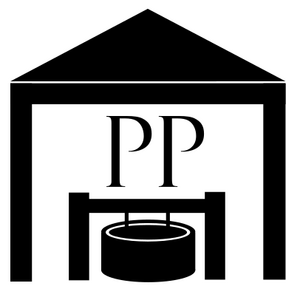
Journalist and writer, Hussam Eddin Baramo (Email: Syrian.writerz@gmail.com) was born in 1961 in Al-Meedan, the southern suburb of Damascus. A formative childhood experience was visiting ‘Dar Al-Oloum’, his father's press house, where he was intrigued by the smell of industrial ink and paper, the noise of printing machines spitting hot books. Hoping for a better life and a liberal political system, the family moved to Lebanon in 1969. This transition was the first in a series of cultural, political and geographical changes that would influence his writings. After the 1975 outbreak of the Lebanese Civil War, his family decided he should return to his grandfather's house in Damascus in order to complete his studies.
On his journey home, he witnessed lines of Syrian tanks approaching Lebanon, and this incident set the tone for the years ahead in Syria. Hussam entered college to study politics and economics and, during a visit to Beirut, became a member of a small Marxist party. With another leftist clandestine group, he continued his involvement in this line of dangerous politics in Syria. By co-founding a publishing company, Al-Wa’I, in Damascus in 1986, he went back to his father's roots, publishing books by renowned writers such as Ghaleb Halasa, Mamdouh Edwan, and Ahmad Fouad Nijm. Having endured the repression that crushed Syria and his party, and imprisoned many of his friends, in 1989 he moved to Cyprus to work as an editorial secretary for a political women-oriented magazine called Shehrezad in Limassol. In 1994 he moved to the UK where he has lived since then, working for a London-based Arabic newspaper.
When the Syrian uprising against the Syrian regime began in 2011, he was part of the creation of the Syrian Writers Association, and served as vice-president and editor-in-chief of Awraq, its cultural publication (2012-2019). He is a columnist, political analyst and has been a speaker at universities, conferences, TV programmes and seminars as well as contributing to debates.
Hussam's previous publications include a poetry book, Poisoned Kohl, 2012, and short stories. He translated Introduction to Slavoj Zizek and Post Orientalism, by Hamid Dabashi, 2013. At present, he works as Managing Editor of Al-Quds Al-Arabi newspaper.
Grave Seas, published by Palewell Press in 2021, is about War, Refugees, Migration and the Immigration Process, and is based on his own and other refugees' real experiences
Review of Grave Seas by Sandra Fluck of bookscover2cover.com
Grave Seas and A Syrian Riddle
In the Foreword to Grave Seas, the poet Hussam Eddin Baramo tells a “Syrian Riddle” about Oedipus’ facing-off against the mythic Sphinx, and, Oedipus correctly answering the riddle the Sphinx poses, saves the city of Thebes. Although Oedipus supposedly lived at a time when the Mediterranean world was united, not so the poet himself: “For a Syrian, like myself, the whole road to my country has been, and always will be, filled with fatal riddles and dangerous words.”
The Foreword is important to read because it provides insight into the seventeen poems that follow. Syria wasn’t always the country’s name; the land’s historical and geographical presence goes back to ancient times. The Greeks called it Suria, and when the Ottoman Empire controlled southeastern Europe, the Middle East, and North Africa, Syria was called Bilad Ash-Sham. Over a period of time during World War I, the colonial powers Britain and France, with the help of Russia, divided up the territory of the Ottoman Empire and Bilad Ash-Sham became Syria. Hussam Eddin Baramo calls this historical period the beginning of the “apocalypse”: “The creation of those states became the cause and the field of several wars, civil wars and continuous political, economic, sociologic and military turmoil, with gigantic tragic consequences in the region and the whole world.”
To understand the tragic consequences of the early twentieth century breakup of the Ottoman territory, one need only to look at Syria, Eddin Baramo argues: It is a “metaphor for the human race.” After all, civilization started with the migration of human beings. They became immigrants. They traded with each other across geographical territories. Today, people who face poverty, food scarcity, terrorism, authoritarian governments, and climate change are migrating. We are confronting the world’s greatest riddle, the poet writes: “Some of us are answering by becoming xenophobes and racists, some are building great walls to prevent others from coming, and some even are destroying the habitat of mother earth.”
Eddin Baramo is not content to write poetry that skirts the troubles that we, as a world population, have gotten ourselves into. Who is to blame? Who is to be faulted? Who won? Who lost? Where do we go from here? These general questions about the state of the world are not answerable in seventeen poems; perhaps they cannot be sufficiently answered, even though so many have tried. Eddid Baramo has chosen a different route. Rather than write generally about the woes of the world, he narrows the subject of his poetry to his mother country Syria and its people, who have faced a civil war since 2011. There are those who cannot flee the war and those who have fled—as immigrants.
Out of the eleven poems in Grave Seas about the Syrian Civil War, “The Soldier’s Last Supper” is one that exemplifies and clarifies the poet’s voice. In “The Soldier’s Last Supper,” the mood is despair; the voice is the poet’s; the subject is war; and the character is Syria. The poem is composed of twelve stanzas, but the mood of the first four stanzas is not the mood of the remaining eight stanzas. As readers contemplate the distinct evolution of the poem, they read an exterior narrative about “this damned war,” and an interior narrative about the guts of war: War destroys families without cause or reason.
In the first four stanzas of “The Soldier’s Last Supper,” the poet describes the exterior landscape of his motherland, the purpose, it seems, to orient his readers for what is to come in the last eight stanzas. In the first stanza, the poet compares a “defeated soul” like his “desecrated homeland.” In the second stanza, his “ancestors’ spirits” walk with him, although invaders have chased these same ancestors’ spirits out of Syria. In the third and fourth stanzas, the poet bets on his despair, a despair that spins “like a spider / as it disintegrates, an eternal web / I will kneel on my tattered knees and / scatter upon my forehead the soil from this damned war.”
In the fifth stanza, the poet turns from the exterior “damned war” to an intensely painful experience of “brotherhood.” It is not clear whether the brotherhood is between siblings, or if the brotherhood is a Syrian brotherhood. Nevertheless, the fifth stanza changes the perspective through which readers see the whole of the poem, and they are pressed to feel the painful relationship between two brothers who fight against each other “so that the president in a faraway palace may win.” But it is even more unbearable when, in the eighth stanza, one of the brothers “has to die / so that the newsreader can glow as she reads the news of impending victory / so that the hyenas at the royal banquet would wail and / the bold keeper at the cemetery would howl with terror.” In the ninth and tenth stanzas, the poet encourages the brother to recall sentimental occasions in their lives together—“Do you remember when we fell in love with the same girl?”—they are brothers, not enemies, the poet tells him. The eleventh stanza is the poet’s final howl of desolation; it begins, “I am the mirror of my brother’s hatred” and ends: “and I . . . am the banner of his army / as it digs deeper into the back of my wounded motherland.” In the twelfth and final stanza, readers need to tease out the ambiguity: Is he himself the beloved brother “who is slaughtering me now,” or do the two brothers together return to their mother “who / oblivious / awaits our laughter at dinner.”
Six poems that complete the seventeen poems in Eddin Baramo’s Grave Seas tangentially relate to the eleven poems concerning Syria and war. One of these six poems, however, stands out as a rich, metaphorical vehicle that buoys readers into another world of being. “The garden Buddha” is such a poem. In this seven-stanzaic poem, the poet surrenders his “fragility to the ground” and disappears into nature’s soil—the garden’s productivity. He plays with snails, sleeps in grass, and awakens when his coal glows. The transformation in the fifth stanza, one of the most beautiful stanzas in the poem, reads: “I took off my human cloth / Dressed the gown of earth / and dissolved to a soil / My mother watered me / My leaves shot up / An embryo in the womb of the garden started to grow.” In the sixth stanza, he sleeps “in the festival of earth” and the final stanza ends: “I see the grains of life flourishing / while existence embrace the nothingness.”
The metamorphosis of the poet in “The garden Buddha” lifts him up. The poem seems diametrically opposed to the eleven poems in which a powerless poet takes a stand against an enemy, one that includes his brother. And yet, “The garden Buddha” is the revelation. Life flourishes just as existing embraces nothingness.
Contact Information
Camilla Reeve, Senior Editor
© Copyright Palewell Press Ltd 2024
Registered in England. Number 10473109. Registered Office 89 Sheen Lane, London SW14 8AE
